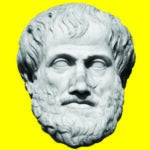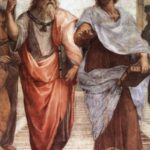Philosophy and its history of ideas continue to inform educated discussions of university life, pop culture, and politics today. Ideas that Matter introduces philosophical concepts that help us to understand compelling issues both inside and outside the classroom.
At each monthly event, students will have meaningful discussions about these important ideas that continue to shape our political, social, and cultural landscape. Join host Dr. Patience Moll for conversations with special guests covering some amazing topics!
All USC students are welcome!
Sponsored by the Thematic Option Honors Program and the McCarthy Honors Residential College.

Friday, March 22, 2019
Sleep Matters
3:00-5:00pm | McCarthy MPR 1501 | Snacks Provided
Special guest: Drew Ackerman, host of the Sleep With Me podcast (https://www.sleepwithmepodcast.com/).
If sleep matters, why are 1 in 3 Americans currently sleep deprived? Philosophers traditionally have denigrated sleep as a mere interruption of our waking moments, when the mind is clear, rational, and productive. Modernist thinkers like Freud, on the other hand, considered sleep and the dreams it produces as revelatory of our unconscious drives. In spite of developments in neuroscience, however, scientists still do not understand how the mind “falls” asleep, and medical sleep aids remain notoriously ineffective. The popularity of Sleep With Me: The Podcast That Puts You To Sleep suggests an essential link between sleep and storytelling, even for adults. In this salon we’ll discuss why and how sleep matters with Drew Ackerman, the creator and host of the Sleep With Me podcast. We’ll consider how the mystery of sleep and of falling asleep can help us to appreciate the “twilight” state of mind that exists in between consciousness and the unconscious, light and dark, day and night, work and rest, intention and inspiration, anxiety and comfort, fiction and nonfiction, and so on. We’ll ask how appreciation of this twilight state can help us to negotiate the demands of a 24/7-culture made possible by capitalism, psychotropic drugs, and digital technology.
To learn more about the Sleep With Me podcast, check out this New Yorker feature from 2016: The Podcast That Tells Ingeniously Boring Bedtime Stories to Help You Fall Asleep.
If you listen to the podcast beforehand, we recommend starting with one of the following episodes (NB: on each episode, the story usually starts about 15 minutes in):
- “Matter, Matters” (#649)
- “Real Time Broth”
- Any of the Game of Thrones recaps

Monday, October 22, 2018
Postcolonial Mythologies: Decolonizing the Everyday
6:30pm | McCarthy MPR 1100 | Snacks Provided
Special guest: Dr. Lydie Moudileno, Marion Frances Chevalier Professor of French and Professor of French and American Studies and Ethnicity at USC
In a multicultural world, it’s risky to assume that people will “get” your Halloween costume, and even riskier to assume it won’t offend. Roland Barthes’s theory of modern myths can help us understand why, and how we can deal with the challenges of “living together” in the 21st century. In his 1956 book Mythologies, Barthes showed how everyday objects and icons–including food, toys, and phrases–are socially encoded with arbitrary meanings, even though we tend to think of their significance as natural, necessary, or self-evident. Everyday objects are not harmless: They also have to potential to become sites of violence, and the same “reality” can be seen differently by different individuals, depending on their personal history and their social identity. For many of us, the more “insignificant” an object or phrase, the more devastating this violence can be–the more “micro” the aggressions, the more powerfully they function. Race is one of these ideas which play a significant role in national and cultural discourses, and also persists in both visible and invisible ways. By helping us to decolonize everyday objects, Barthes’s semiology enables us to navigate a calendar on which nearly every national holiday seems to express a questionable “racialized” myth.
For more information about Barthe, see this brief introductory video: https://www.youtube.com/watch?v=6GCzq8we-bI
And here is a link to his book Mythologies: https://soundenvironments.files.wordpress.com/2011/11/roland-barthes-mythologies.pdf

Monday, October 1, 2018
Plato and Technology Addiction
8pm | McCarthy MPR 1501 | Snacks Provided
Special guest: Kendra Atkin, Comparative Studies in Literature and Culture PhD Candidate & T.O. Writing Instructor
Smart phones, tablets, Snapchat, Instagram, the Internet – digital media connects us to the world, but is it also turning our brains into mush? Are concerns about tech addiction well founded or mostly hype, and do they place unfair emphasis on “the younger generation”? How can we remain in control of our devices, when Silicon Valley engineers confess that Facebook was designed to work like an addictive drug?
Current concerns about tech addiction rarely acknowledge their origin in Plato’s two-thousand-year-old description of writing as a powerful but dangerous tool that the Egyptians invented to improve memory. In this salon, we’ll consider Plato’s argument that writing both empowers the mind and weakens it, forcing us to become dependent on this tool. If Plato helps to understand how technology works like a drug, more recent philosophers like Jacques Derrida take the discussion further: is there such a thing as a “human mind” independent of technology? Have our brains ever not been dependent on tools? Have we ever not been dependent on “drugs”? Why does Plato identify a certain type of human–the Egyptian—as the pusher of this enticing but dangerous drug? By writing down philosophical arguments for the first time, was Plato himself not a pusher who undermined philosophy from its very beginning? Join us for a rich discussion of the dangers of technology, the relation of technology to the brain, and the way that technology makes us who we are. Students are encouraged to take a look at Plato’s myth about writing here: http://www.john-uebersax.com/plato/myths/phaedrus.htm.

Thursday, October 26, 2017
Wellness & Eudaemonia:
A Conversation about Moral Happiness
6 pm | McCarthy MPR 1100 | Snacks Provided
Special guest: Lyn Boyd-Judson, Director, Levan Institute for Humanities and Ethics and UNESCO Chair in Global Humanities and Ethics Education
What if we think of happiness as an internal, moral state that we practice on ourselves, rather than a fleeting experience dependent on external circumstances and the pursuit of pleasure? Aristotle argues that real happiness or eudaemonia can be found in the pursuit of virtue or “excellence,” which he understands as an intermediate path to be taken between two extremes. Courage, for example, is not the opposite of fear, but a path we might pursue in between feeling fear, on the one hand, and completely avoiding situations that frighten us, on the other. We’ll discuss why such a path requires the prior development of good habits, embracing resistance, an ability to deliberate independently about complex situations, and making goal-oriented choices instead of relying on external rules and authorities. In this way, we’ll consider how Aristotle’s notion of “the good life” both overlaps with eastern philosophy and can enrich our discussion of wellness today.

Thursday, September 14, 2017
Poiesis in the Golden Age of Television
7-9 pm | McCarthy MPR 1100 | Snacks Provided
Special guest: Ali Laventhol, Writer and Supervising Producer of the show Famous in Love.
Just as Greek tragedy flourished while the Golden Age of Athens came to an end, so too has television exploded at a time when democracy is being called into question and environmental catastrophe looms. Aristotle’s theory of poiesis, or literary creation, as a means for communal cohesion can help to understand why. By engaging Aristotle along with a former visual-effects artist turned TV-writer and producer, we’ll discuss what’s at stake in the displacement of cinema by TV, how budding writers can break into the biz, what to study if you want to write for TV, and why binge-watching should be understood as both a philosophical and a political experience.

Wednesday, April 19, 2017
Baudrillard: “Are we living in a simulation?”
6-8pm | VKC 155 | Snacks Provided
In the 1980s the French philosopher Jean Baudrillard used Plato’s allegory of the cave to argue that modern life is dominated by simulations, which is to say, images that don’t represent anything real. Baudrillard goes so far as to call such simulations “hyperreal,” because they constitute our most important reality—they are themselves what is “real” for us. Baudrillard’s examples of simulations go beyond mere images and include Disneyland, Los Angeles, the Watergate scandal, “reality TV,” and terrorism—a list that implies that “America” itself is a simulation. We’ll consider Baudrillard’s argument that simulations are opposed to “law and order” and pose a threat to political power (which responds by manufacturing crises that imply some urgent, “real” threat). And we’ll use Baudrillard’s ideas to ask about the increasing dominance of simulations in our lives, thanks to developments in computers, social media, and iPhones, for example. Finally, we’ll consider the recent proposal that, given the unlikelihood of the 2017 US presidential election, the 2017 Super Bowl game, the 2016 World Series, the Best Picture announcement at the 2017 Oscars, the return of Roger Federer to tennis, and so on, we are even “living in a simulation,” which is to say, no more than simulations ourselves, as this recent New Yorker article explains. Students are asked to read the article as well as an excerpt from Baudrillard’s Simulacra and Simulation.

Wednesday, March 29, 2017
Foucault’s Panopticon
6-8 pm | LVL 16 | Free Pizza
While modernity has often been understood in terms of an increase in individual freedom, Foucault argues that modernity should be understood in terms of an increase in surveillance and control. Foucault develops this argument with the example of the Panopticon, a modern prison structure that arranges prisoners in individual cells surrounding a guard’s watchtower, so that the guard can watch any cell at any time. Even though the guard cannot watch all prisoners all the time, the prisoners never know whether they are being watched, and thus they control their own behavior constantly, in case they are being watched. In surveilling themselves they discipline themselves, and at low cost to the state. We’ll discuss Foucault’s argument that this internalized process of fear, surveillance, and control pervades all aspects of modern social life, from social institutions such as prisons, schools, and hospitals, to social practices and phenomena such as testing, measuring, competing, and registering. Foucault even argues that the Panopticon has created our idea of “the individual” as such. We’ll discuss the many roles the Panopticon plays in our own lives—especially given developments in digital technology—and the ways it shapes a self-consciousness that willingly subjects itself to systems of power that do not necessarily act in its best interest.
Please make sure you do a little pre-reading before the event. An excerpt on the Panopticon from Foucault’s Discipline and Punish (1975)—with images!—can be found here: https://foucault.info/doc/documents/disciplineandpunish/foucault-disciplineandpunish-panopticism-html.

Wednesday, March 8, 2017
Gandhi and Passive Resistance
6-8 pm | VKC 155 | Free Pizza
In this salon we will discuss the notion of passive resistance, or nonviolent action, as developed by Mahatma Gandhi in the early 20th century. Gandhi called for passive resistance—or what he called satyagraha, the “force of the soul” –as the only effective way of getting the British out of India and of establishing true Indian independence. We’ll discuss the success of Gandhi’s argument, its influence on Martin Luther King, Jr., and its role in current discussions about effective political resistance. But we will also explore the complexity of Gandhi’s notion of satyagraha and of his argument that real change only takes place by changing people’s souls. We’ll look at how Gandhi’s Hindu-based call for nonviolent action is bound up with his critique of not only colonialism but also technology, capitalism, and modernity as such. Gandhi calls on us not only to resist the temptation to violence or “physical force,” but also to resist the temptations of materialism and technology, suggesting that modernity as such is bound up with the violence he wants to displace. In calling for a rejection of modernity, is Gandhi too radical and does he set the bar too high? Or are Gandhi’s warnings about the violence of technology more relevant than ever in our digital age?
Please take a moment to read a small segment from Hind Swaraj. It was written in 1909 during British colonial rule of India and is directed toward a peasant audience; thus it is written in very simple, clear, accessible language. Like Plato, Gandhi uses a dialogue model, in which the “editor” represents Gandhi himself and the “reader” represents an Indian advocate of violent, armed rebellion against the British.
Please read Chapter IV “Swaraj” (pp. 25-26) and Chapter XXVII “Passive Resistance” (pp. 55-59). Also, this helpful link gives the most important quotes from each chapter of that book: http://www.mkgandhi-sarvodaya.org/hindswaraj.htm

Friday, February 3, 2017
Art in Action: Aristotle’s Poetics
2-4 pm | AHF 410 | Free Pizza
“The aim of human life is doing something, not just being a certain sort of person. Though we consider people’s characters in deciding what sort of person they are, we call them successful or unsuccessful only with reference to their actions” – Aristotle, Poetics
Aristotle’s Poetics is the oldest example of literary theory in the West and still influences how literature is both taught and written today (ever heard of tragic flaw, reversal of fortune, or catharsis?). The Poetics is influential not only because it explains what makes a story work well (plot matters more than character), but also because it explains why reading literature is important, both in our private and our political lives.
In this Salon, we’ll discuss how Aristotle’s theory of literature emerges in response to his teacher Plato’s argument that art merely indulges our emotions, is a waste of time, and makes us politically irresponsible. In the Poetics, Aristotle closely analyzes how literature actually works, and in the process, shows that good literature is closer to philosophy than history because it presents what is “necessary” rather than “accidental.” Literature thus teaches us how “the real world” works and enables us to imagine “what might be possible,” thereby enhancing our ability to engage in political action and be responsible citizens.
Excerpts from the Poetics will be made available ahead of time. Students are asked to come to the Salon with favorite works of literature or film in mind that we can discuss in relation to Aristotle’s theories. We’ll use Aristotle’s ideas to discuss not only how specific novels, films, and TV shows work, but also what they teach us about “the real world” and how we might want to act in it.
To get the most out of the Salon, read this excerpt of Poetics before you attend.

Tuesday, November 15, 2016
Plato’s Allegory of the Cave: Images and Politics
5-7 pm | AHF 410
Please join us for Plato’s Allegory of the Cave: Images and Politics, the first in a new TO salon series called Ideas That Matter. Moderated by Dr. Patience Moll, these monthly salons will allow you to explore and discuss philosophy’s intersections with pop culture, university life, and politics today.
Arguably the foundational narrative of Western philosophy, Plato’s allegory of the cave not only addresses the longstanding, democratic relation between education and civic responsibility, but also more recently has been invoked to explain the dominance of photography, images, and virtual reality in contemporary life. In these respects, this two thousand years old story helps us to think about digital technology and politics at the end of 2016. We will discuss Plato’s teaching on the purpose of education and the importance of community service, especially in light of the 2016 US presidential election. But we also will consider the impact of IPhones, Instagram, and other digital media on democratic participation, given Plato’s suggestion that images, more than individuals, are the real governing forces in our lives. You can read Plato’s allegory here (it’s short), or watch an animated version narrated by Orson Welles (!) here.

